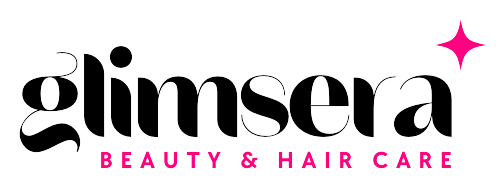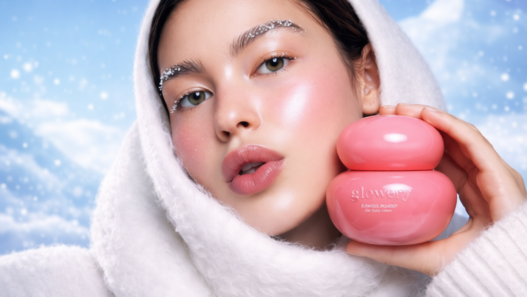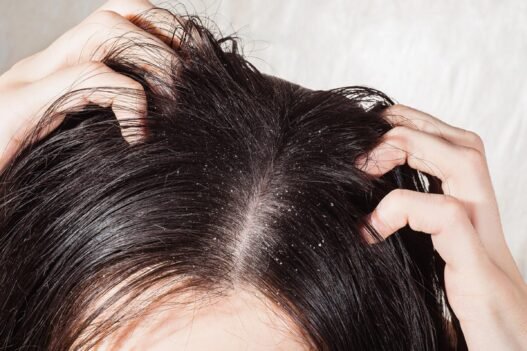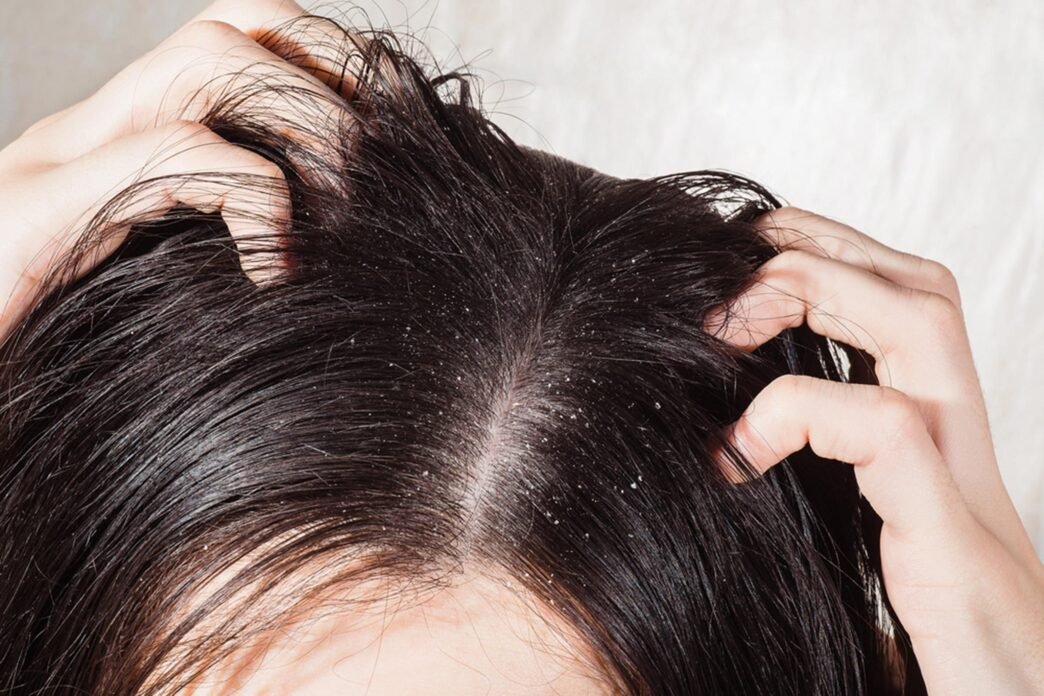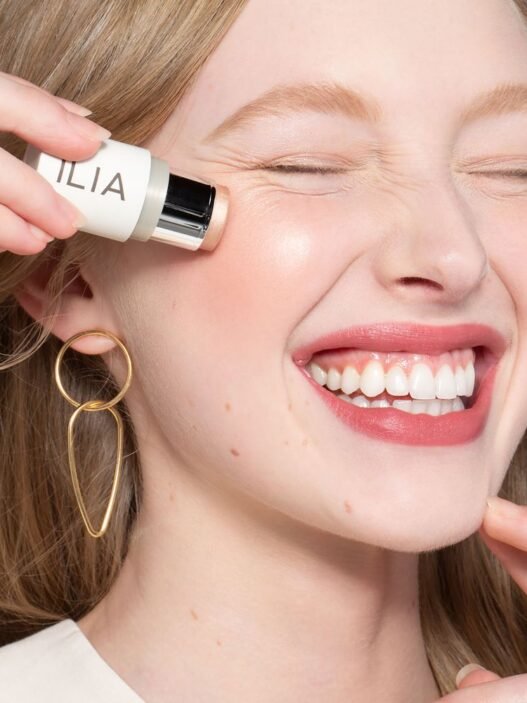Greasy hair is a problem from which it may seem impossible to overcome. It is already sticking to your scalp, limp and lifeless, by midday, even after you have washed and styled it. Because of the frequent cycle of washing and oil creation, many people question whether they’re doing something incorrectly or if their hair is just destined to appear unwashed. The truth is that a variety of things, including how frequently you wash your hair, what you eat, and how you treat it during the day, can cause rapidly accumulating oil.
The idea that more washing equates to less grease is what so frustrates people about this problem. Overwashing actually exacerbates the problem by causing your scalp to produce excessive amounts of oil. Although sebum, the natural oil produced by your scalp, is necessary for healthy hair, hair becomes greasy too quickly when production is out of balance.
Common Causes and Solutions for Greasy Hair
| Cause | Why It Happens | Solution |
| Overwashing | Frequent washing strips natural oils, causing excess sebum production. | Space out washes and use a gentle, balancing shampoo. |
| Product Buildup | Styling products coat hair, making it appear greasier. | Use lightweight, oil-free products and cleanse hair weekly. |
| Hormonal Changes | Fluctuations in hormones trigger excess oil production. | Maintain a balanced diet and consult a dermatologist if needed. |
| Diet | Excess processed foods and sugars increase scalp oiliness. | Incorporate nutrient-rich foods like healthy fats and leafy greens. |
| Fine Hair Texture | Fine hair has more oil glands per inch, leading to faster oil buildup. | Use volumizing products and avoid applying conditioner at the roots. |
| Stress | Cortisol spikes cause the scalp to produce more oil. | Practice stress management techniques such as yoga and meditation. |
| Touching Hair Too Often | Oils from hands transfer onto the scalp and strands. | Avoid excessive touching and use a clean hairbrush. |
| Dirty Hair Tools | Brushes, pillowcases, and towels collect oil and redistribute it. | Clean hair tools and change pillowcases frequently. |
| Weather & Environment | Heat and humidity stimulate sebaceous glands. | Adjust haircare products based on seasonal needs. |
| Underlying Scalp Conditions | Conditions like seborrheic dermatitis can cause oil buildup. | Use medicated shampoos and seek professional advice if needed. |
Reference: Neutrogena on Greasy Hair
The protective oil that keeps hair nourished and strong is sebum, not the enemy. In excess, however, it can cause hair to become greasy and limp in a matter of hours. Overwashing is among the most widespread offenders. Contrary to popular belief, frequent washing actually makes oil less noticeable. When natural oils are removed from the scalp, it overcompensates, producing even more oil. Try alternating between washing and using a dry shampoo to absorb oil in between.

Another thing that makes oily hair worse is product accumulation. Over time, residues from shampoos, conditioners, and styling products can build up and trap dirt and oil. This accumulation can be broken down by using a clarifying shampoo once a week, which can restore volume and freshness.
Additionally, hormonal changes are quite important. Oil production can be affected by puberty, pregnancy, and menopause; at times, greasy hair may seem inevitable. These periods can cause androgens, the hormones that secrete oil, to become more active, which increases the production of sebum. This explains why some people have oilier hair during significant hormonal changes or adolescence.
Additionally, diet has a surprisingly significant impact on scalp health. An excessive intake of dairy products, processed meals, and refined carbohydrates might worsen the production of oil. Foods high in antioxidants, omega-3 fatty acids, and water, on the other hand, help balance the amount of oil on the scalp. Consider salmon, avocados, and leafy vegetables. A healthy scalp and stronger, glossier hair are two benefits of eating these nutrients.
Another element that is sometimes disregarded is stress. Increased production of oil can result from elevated amounts of cortisol, the body’s main stress hormone. It may be possible to restore equilibrium if you observe that your hair gets oily more quickly during stressful times by using relaxation methods like deep breathing or exercise.
Generally speaking, finer hair types grow oily faster than thicker ones. The roots seem oily considerably more quickly because oil may move down the strand a shorter distance. Selecting volumizing, mild shampoos and steering clear of thick conditioners close to the scalp might assist those with fine hair keep their hair looking fresher.
Habits of the day also matter. You might be doing more than you realize if you repeatedly adjust your hair during the day or run your fingers over it. Greasy buildup is accelerated when oils from your hands get into your hair. In the same way, if hairbrushes aren’t cleaned on a regular basis, they will re-spread old oil and grime onto recently washed hair.
Environmental elements that can also activate sebaceous glands include heat, humidity, and pollution. Sweat is more common in warmer climates and, when combined with natural oils, gives the skin a glossier, slicker look. By modifying your hair care regimen according to the season, you can reduce excessive oil. For example, use lighter products in the summer and richer ones in the winter.
Some people’s hair is consistently oily because of underlying scalp issues. Seborrheic dermatitis, for example, causes flakiness and excessive oiliness that are frequently confused with dandruff. In certain situations, medicated shampoos with components like ketoconazole or salicylic acid might help to balance things out and lessen oil production.
Talking about oily hair is becoming more and more popular in the beauty business, and it’s not just about personal experience. With many promoting less frequent washings to enable natural oils to nourish the scalp, celebrities and influencers have embraced natural haircare practices more and more. Kim Kardashian and Gwyneth Paltrow, for instance, have said that they wash their hair only once or twice a week because they think it keeps their hair healthier. On the other hand, some contend that washing every day is necessary for volume and freshness.
Written by the Glimsera Team, your go-to source for all things beauty and hair care. Our passionate experts combine years of industry experience with a love for enhancing natural beauty. We’re dedicated to providing you with the latest tips, trends, and product recommendations to help you look and feel your best. Join us on this journey to discover effective hair care routines, beauty secrets, and empowering insights tailored for every individual.
